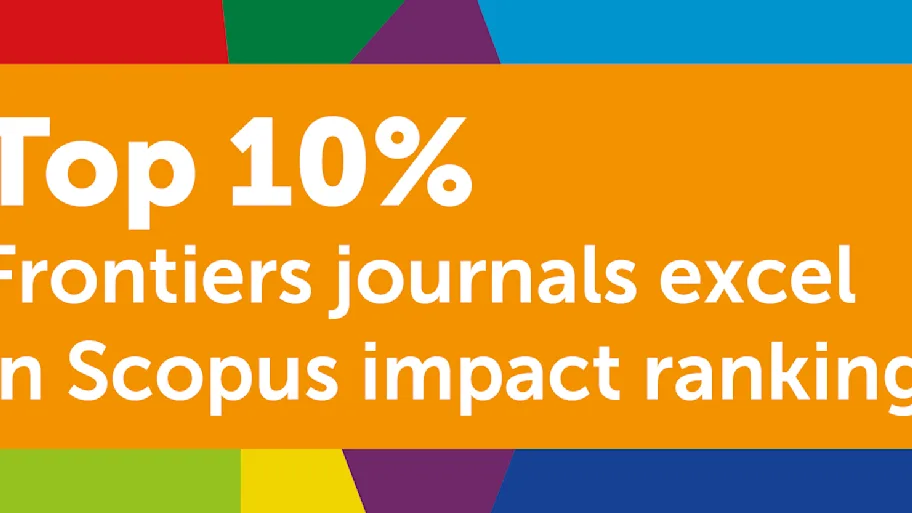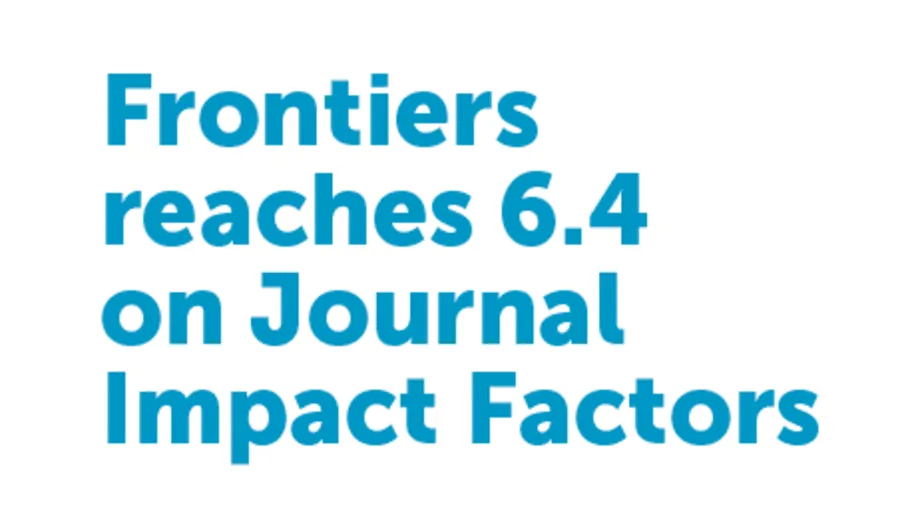
- Science News
- Frontiers news
- Frontiers journals indexed in the 2013 Journal Citation Reports by Thomson Reuters
Frontiers journals indexed in the 2013 Journal Citation Reports by Thomson Reuters
Frontiers has reached a number of important milestones over the past year, including 45,000 academics on the editorial boards, over 20,000 published articles and 100,000 authors worldwide. This week, the 2013 Journal Citation Reports (JCR) confirm, once again, Frontiers’ leading position as a high-quality, open-access publisher with a strong performance across the “Frontiers in” journal series.
Four journals receive Impact Factors for the first time:
– Frontiers in Cellular and Infection Microbiology: 2.6, ranks 53 out of 119 in Microbiology– Frontiers in Microbiology: 3.9, ranks 25 out of 119 in Microbiology– Frontiers in Plant Science: 3.6, ranks 23 out of 196 in Plant Science– Frontiers in Psychology: 2.8, ranks 20 out of 127 in Multidisciplinary Psychology (JCR Social Sciences Edition)
All journals covered for a number of years remain strong players:
– Frontiers in Aging Neuroscience: 2.8, ranks 133 out of 251 in Neurosciences; 18 out of 49 in Geriatrics & Gerontology– Frontiers in Behavioral Neuroscience: 4.2, ranks 70 out of 251 in Neurosciences; 8 out of 49 in Behavioral Sciences– Frontiers in Cellular Neuroscience: 4.2, ranks 69 out of 251 in Neurosciences– Frontiers in Computational Neuroscience: 2.2, ranks 168 out of 251 in Neurosciences; 12 out of 52 in Mathematical and Computational Biology– Frontiers in Human Neuroscience: 2.9, ranks 127 out of 251 in Neurosciences; 24 out of 74 in Psychology– Frontiers in Neural Circuits: 3.0, ranks 124 out of 251 in Neurosciences– Frontiers in Neuroanatomy: 4.2, ranks 68 out of 251 in Neurosciences; 3 out of 20 in Anatomy and Morphology
A selection of top-cited publications for the new journals is highlighted here. All articles are open-access and freely available to read.
All journals from the “Frontiers in” series are submitted for consideration as soon as they meet the criteria required by Thomson Reuters. Other journals, including Frontiers in Physiology and Frontiers in Pharmacology, will receive their first Impact Factors in 2015.
The Frontiers journals that received Impact Factors for the first time are also the largest open-access titles in their respective categories. Frontiers in Psychology is the largest psychology journal and Frontiers in Microbiology and Frontiers in Plant Science are the largest open-access journals in their respective categories. These tremendous achievements confirm that Frontiers has emerged as the preferred choice of publication venue for academic communities.
Formed by scientists in 2007, Frontiers empowers researchers to take publishing into their own hands. All journals are run by leading scientists, clinicians and engineers, and adopt a non-selective and collaborative review to publish the main body of science at the highest quality.
Frontiers Journal Impact Factors maintain a strong performance this year. Yet if Frontiers were to cherry pick and publish the top 5% of its highly cited articles, Frontiers Impact Factors would be in the top 2% ranking and rival the most prestigious, traditional journals.
As a high-volume publisher, Frontiers maintains high-quality publications with its collaborative, rigorous and transparent peer review. Authors, editors and reviewers can engage in constructive, real-time discussions in an Interactive Review Forum.
Publishing with Frontiers also means:
– Open-access for high visibility and international reach– Fast publication in an average time of only 98 days– Article metrics that track the reach and impact of every article– Networking technologies for maximum discoverability
Impact Factors provide only one indicator to measure journal performance. At the article-level, Frontiers provides Advanced Impact Metrics for comprehensive measurement of the reach and impact of articles, including, views, downloads, top referral sites, visiting countries and a detailed breakdown of demographics.
Together with our Editors-in-Chief, we are proud that Frontiers is consistently recognized for its contribution to the research community – thank you for being part of this success!






